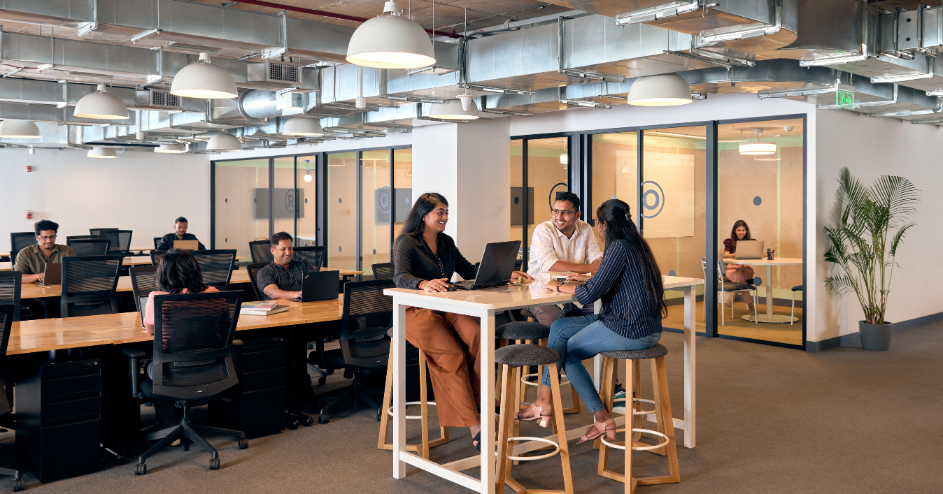WEWORK LABS
How India is Reshaping the Global Startup Ecosystem

Discover how India is shaping the global startup ecosystem with innovations like UPI and Soundbox QR. Learn about Bharat’s rise, government support, and key challenges for entrepreneurs.
Introduction
Over the last decade, India has consistently left its mark on the global startup ecosystem. Whether in terms of startup density—India is now the third-largest ecosystem in the world—or in terms of innovation, such as the advent of UPI, India has made significant contributions to the global startup ecosystem.
There are many reasons why the world is looking towards India as a strong proposition. India is now perceived as a high-growth economy and benefits from a demographic advantage. Additionally, India stands out as an outlier, according to JP Morgan, when compared to many emerging market (EM) peers—thanks to improving fundamentals in Indian companies and India’s ability to generate and retain profits for shareholders. So, what’s the secret to India’s growing influence in the global startup ecosystem? This was the subject of our most recent episode of Upstart.
You can watch the full episode here.
Rise of Bharat
The transformation of Bharat into a startup powerhouse has been remarkable. Government initiatives like Startup India, the push for Digital India, and policies supporting entrepreneurship have laid a strong foundation. This is evident in the number of startup registrations. In 2014, there were only about 300 registered startups; that number has now risen to 1,57,706—reflecting the growing appetite to build in India’s market and contribute to the world startup ecosystem.
Furthermore, over 45% of India's DPIIT-recognized startups are emerging from Tier 2 and Tier 3 cities. This shows that ambition extends beyond traditional startup hubs. Startups from these regions focus on hyperlocal problem statements that have nationwide applications. One of the best examples of this is the Soundbox QR.
Paytm, the company that pioneered the Soundbox QR, developed it as a result of founder Vijay Shekar Sharma’s firsthand experience with real-time transaction validation in the market. Vijay quickly recognized the need for an arbitration device between the customer and the merchant—leading to the creation of the Soundbox QR.
The device found such a perfect product-market fit that Paytm’s competitors quickly followed suit. Today, major fintech players like PhonePe, BharatPe, and Google Pay have all launched their own versions of the Soundbox QR, making it a standard tool for merchants across Bharat. Notably, the Soundbox QR is now being exported to other markets in Southeast Asia and Africa, demonstrating India’s increasing influence on the world startup ecosystem.
Also Read: Mumbai startup Ecosystem
India’s role in the global startup ecosystem is stronger than ever, and as innovation continues, the world startup ecosystem will increasingly look to India for new breakthroughs and solutions.
Watch Arvind Radhakrishnan, Head of WeWork Labs break this down further in our latest video here.
Challenges and Opportunities to Thrive in the Global Startup Ecosystem
Despite its success, Bharat's startup ecosystem faces challenges. For starters, access to capital is still an issue for many startups due to increased competition and investor caution being at an all time high. Although the government is still extremely bullish about creating many more startup hubs in the country. As Union Commerce & Industries Minister Piyush Goyal said: “We should aspire to go beyond. We should aspire to have our own Silicon Valley… I know Bengaluru is the Silicon Valley of India, but it's time we started thinking about tying up with NICDC and creating a whole new township dedicated to entrepreneurs, startups, innovators, and disruptors.”
Conclusion
The rise of Bharat in the global startup ecosystem is a testament to its entrepreneurial spirit, resilience, and adaptability. With continued support from the government, investors, and a growing talent pool, Bharat is well-positioned to drive global innovation. The future belongs to those who innovate, and Bharat is proving that it is ready to lead the way.
From its emergence as a formidable force in the global startup ecosystem Bharat is a testament to its entrepreneurial spirit, resilience, and adaptability. Fuelled by a dynamic talent pool, increasing investor confidence, and strong government initiatives, the country is transforming into a powerhouse of innovation.
However, to sustain this momentum, it is crucial to address key challenges such as access to capital for early-stage startups, regulatory complexities, and the need for deeper integration with global markets. Strengthening digital infrastructure, fostering collaboration between academia and industry, and enhancing mentorship networks will be critical in ensuring long-term success.
Related Blogs:

WEWORK LABS
With the Indian startup ecosystem gaining maturity, there are a number of things changing—startups are thinking more global in their ambitions, more companies are taking their companies to the market

WEWORK LABS
India may be home to unicorns and cutting-edge tech, but at its core, it's still a nation of farmers — with over 50% of the population dependent on agriculture.

